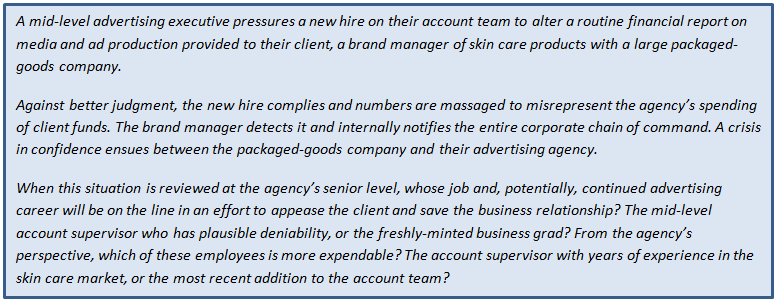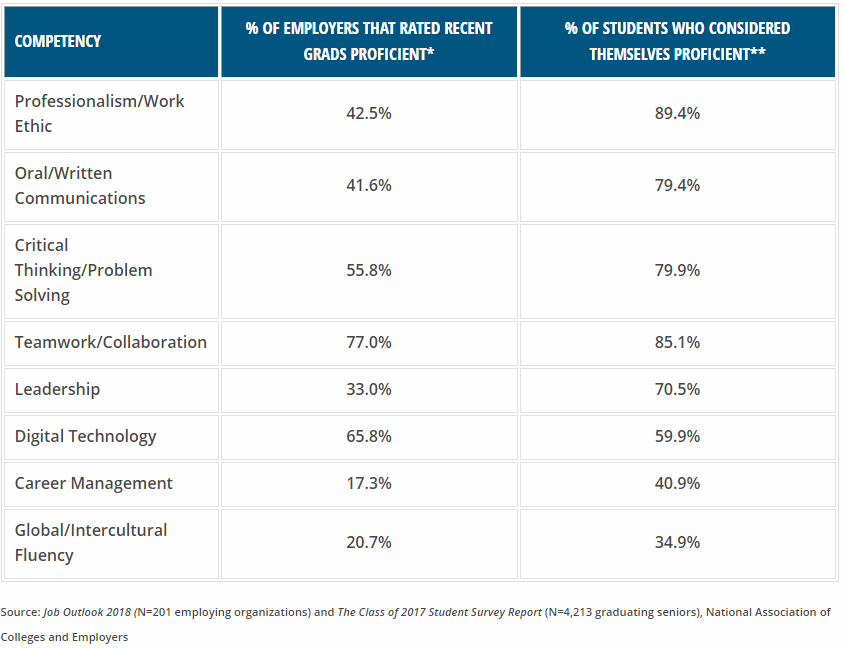Four Criteria to Promote Meaningful Development: Assess Knowing & Doing
August 21, 2018
Last week, we introduced four criteria needed from an instructional tool to promote meaningful development in students. As a quick reminder, these criteria are distilled from decades of research on leadership development and performance feedback. Now, let’s dive deeper into the importance of the first criteria and discover why instructional tools must assess knowing and doing.
Assess Knowing and Doing
According to a study of over 2600 students, an average of only 20% of the knowledge students acquire in the classroom can be skillfully applied.1 Instructional tools that ignore this knowing-doing gap, and the importance to assess knowing and doing, result in graduates who lack the practical experience and skills to meet the demands of hiring organizations. Consider the following scenario, in which a new hire fails to incorporate the ethical standards learned in college into the ethical decision-making process:

The importance of addressing the knowing-doing gap in education is further highlighted in research conducted by the National Association of Colleges and Employers (NACE). NACE asked graduating college seniors and employers to rate new graduates on career readiness using eight competencies. The results, shown in table 1, indicate that “employers were less likely to view new college graduates as proficient in these competencies than were the students themselves. This can be problematic because it suggests that employers see skills gaps in key areas where college students don’t believe gaps exist.” – NACE
Table 1: Employer vs. Student Perception of Career Readiness

While textbooks, case studies, and multiple-choice exams are effective is assessing the memorization of concepts, they do little in teaching students how to apply those concepts in the real world. It’s crucial for instructional tools to provide students with the opportunity to apply the knowledge and practice the skills that will determine their success post-graduation.
Discover the Solutions that Fit Your Needs
If you would like to learn more about how our suite of experiential learning solutions promote meaningful student development and bridge the knowing-doing gap, contact us at welcome@capsim.com


.png?width=80&name=1-questions%20(1).png)